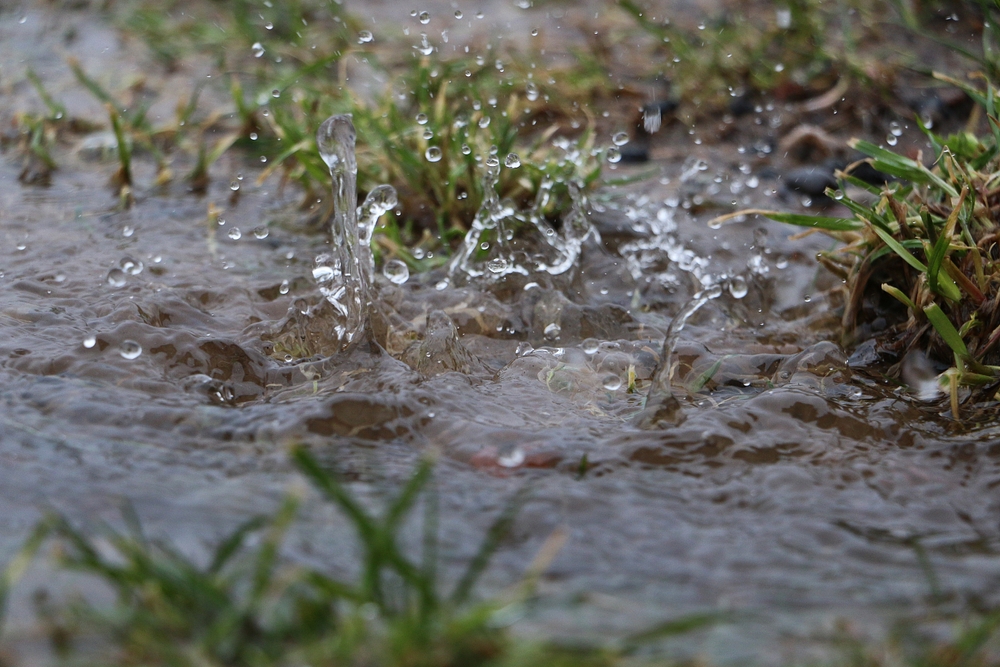
Advantages of Rain Gardens Within Commercial Landscapes
If you’re looking to include features in your commercial landscape that speak to both aesthetics and practical value, a rain garden might be ideal for you. What are some commercial rain garden benefits, and why are they often considered for commercial landscaping setups?
At Wright Landscaping, we’re proud to offer the best expert commercial landscaping services you’ll find around Salt Lake City, Spanish Fork, Salem, Mapleton, Layton, Eagle Mountain and nearby areas of Utah. We can incorporate a wide variety of features into your landscape, including rain gardens. Here are some commercial rain garden benefits, both aesthetic and practical alike, that may prompt you to include such a feature in your commercial landscape.
Natural Management of Stormwater
Let’s begin on the practical side, where commercial rain gardens provide a number of benefits related to stormwater management. Specifically, rain gardens can help reduce the amount of stormwater runoff and pollutants that enter local waterways. This is because the plants and soil in a rain garden act as natural filters, absorbing excess water and removing harmful substances before they reach lakes, rivers, and other bodies of water.
This can be immensely beneficial for both the environment and communities, as heavy stormwater runoff can cause erosion and flooding, while carrying pollutants that harm aquatic life. This can also have negative impacts on human health, as contaminated water can be a source of illness.
Reducing Flooding and Erosion
Another practical commercial rain garden benefit is its ability to reduce flooding and erosion. By capturing stormwater runoff, rain gardens can help prevent excess water from overwhelming drainage systems during heavy rain events. This is particularly important in urban areas where impervious surfaces like pavement and buildings leave little room for water absorption.
In addition, the plants in a rain garden can help stabilize soil and prevent erosion, especially on steep slopes or along riverbanks. This not only protects nearby properties from damage but also helps maintain the health of local ecosystems.
Filtering Pollutants from Runoff
A commercial rain garden will effectively filter pollutants from stormwater runoff, thereby reducing the amount of pollution entering our waterways. As rainwater flows through the garden, it is naturally filtered by vegetation and soil, removing harmful substances like oils, sediments, and fertilizers.
Moreover, rain gardens are designed to have a slow drainage rate which allows for more time for filtration and absorption of pollutants. This helps prevent contaminated water from reaching nearby bodies of water and minimizes the negative impact on aquatic life.
Aesthetic Benefits
Now let’s flip to the aesthetic side, where commercial rain garden benefits are also extensive:
- Curb appeal: A well-designed rain garden can enhance the visual appeal of a property, making it more attractive and inviting.
- Biodiversity: By attracting different types of plants and wildlife, rain gardens can increase biodiversity in urban areas where green spaces are limited.
- Relaxation: The presence of a rain garden can create a calming atmosphere, promoting relaxation and reducing stress for those who spend time near it.
- Greenery: Rain gardens provide a natural green space in an otherwise urban or developed area, adding beauty and improving air quality.
- Educational opportunities: Rain gardens can also serve as educational tools to teach people about the importance of conserving water and protecting our environment.
Importance of Quality Rain Garden Installation
If you’re thinking of taking advantage of all the benefits a commercial rain garden has to offer, it’s vital that you have it installed properly. A well-designed and constructed rain garden can effectively manage stormwater, while a poorly built one could potentially cause more harm than good. Here are some reasons why quality installation is important:
- Proper drainage: The whole point of a rain garden is to capture and absorb excess water during heavy rainfall. If the garden is not installed at the correct depth or with proper slope, it may not be able to function effectively and could lead to flooding or erosion.
- Soil composition: Good rain gardens require a specific mix of soil types in order to promote proper filtration and absorption of water. This means using a combination of sand, topsoil, and compost to create the right texture and structure for healthy plant growth.
- Native plants: Choosing native plants for your rain garden is crucial for its success. These plants are adapted to the local climate and soil conditions, making them more resilient and requiring less maintenance. They also provide important habitats for local wildlife.
- Maintenance: While rain gardens are low-maintenance once established, they do require some upkeep in order to keep functioning properly. This includes regular weeding, mulching, and occasional pruning of plants. It’s also important to monitor the health of the plants and replace any that may not be thriving.
At Wright Landscaping, we’re here to offer the best expert commercial landscaping services available around Lake City, Spanish Fork, Salem, Mapleton, Layton, Eagle Mountain and nearby areas, including rain gardens and many other feature options. Contact us today to learn more or get started!
RELATED POSTS

Creating Amenity-Rich Outdoor Spaces That Sell Homes

Boosting Property Value with Professional Landscaping
